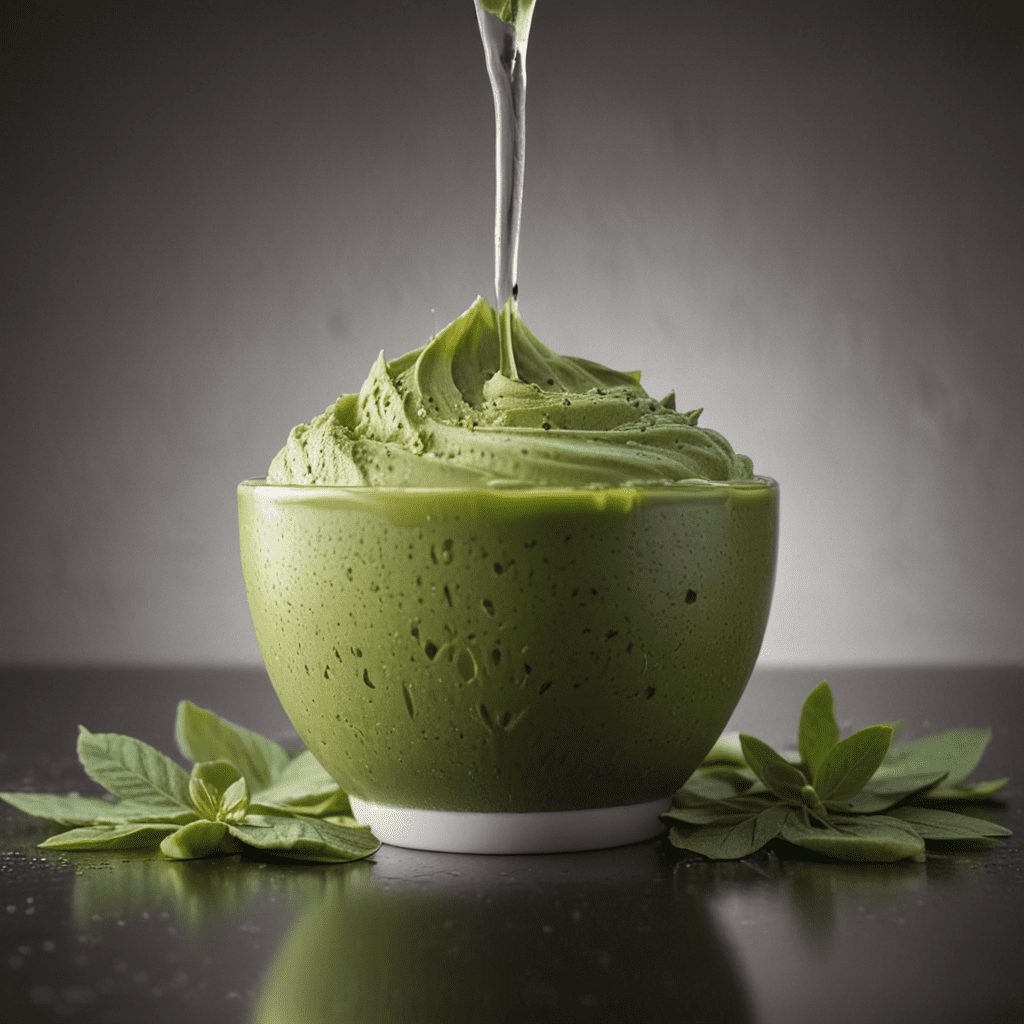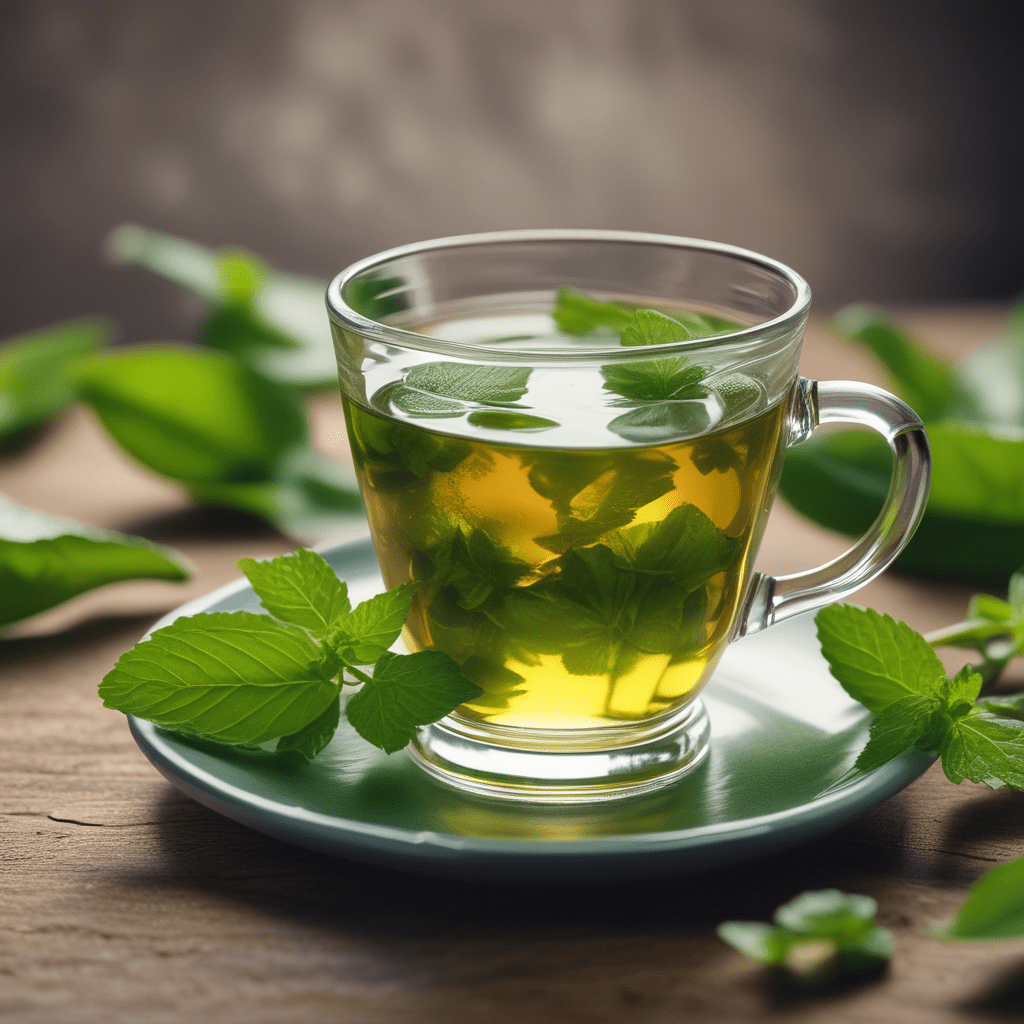
Matcha and Dental Care: Green Tea's Effects on Oral Hygiene
Introduction
Matcha, a finely-ground green tea powder revered for its health-promoting properties, offers exceptional benefits for dental health. This ancient elixir contains an array of potent compounds that effectively combat harmful bacteria in the oral cavity, promoting a healthy smile.
What is Matcha?
Matcha is derived from the Camellia sinensis plant, the same source as traditional green tea. However, it is distinguished by its unique cultivation process, in which tea plants are shaded for several weeks before harvesting. This technique enhances the concentration of chlorophyll, amino acids, and other beneficial compounds.
Matcha's Catechins and Their Antibacterial Properties
Matcha is particularly rich in catechins, a class of polyphenols with potent antibacterial activity. Catechins inhibit the growth and proliferation of Streptococcus mutans, a primary culprit in dental plaque formation and tooth decay. By neutralizing these harmful bacteria, matcha helps maintain a balanced oral microbiome and prevents the buildup of dental biofilm.
Inhibiting Plaque and Cavity Formation
Dental plaque, a sticky film of bacteria, sugar, and other particles, is the primary cause of cavities and gum disease. Matcha's catechins disrupt plaque formation, inhibiting the adhesion of bacteria to teeth and gums. This anti-plaque effect effectively reduces the risk of developing cavities and promotes overall oral health.
Preventing Gum Disease and Inflammation
Matcha's antibacterial properties extend beyond inhibiting plaque formation. Its catechins have also been shown to suppress the growth of Porphyromonas gingivalis, a bacterium associated with gum disease. By reducing inflammation and bleeding in the gums, matcha promotes periodontal health and prevents the onset of gum disease.
Matcha and Fluoride: A Synergistic Effect
Fluoride, a common ingredient in dental care products, is well-known for its enamel-strengthening properties. When combined with matcha, these benefits are amplified. Matcha's catechins enhance the absorption and retention of fluoride, maximizing its protective effects on the teeth. This synergistic combination effectively prevents tooth decay and enamel erosion.
Matcha and the Enamel
Matcha's gentle abrasive texture can gently remove surface stains on teeth, leaving them brighter and whiter. However, unlike some commercial toothpaste abrasives, matcha does not damage tooth enamel. Its fine particles gently polish and brighten without causing abrasion or sensitivity.
Matcha as a Natural Breath Freshener
Matcha's natural chlorophyll content acts as a natural breath freshener. Its antibacterial properties neutralize odor-causing bacteria, leaving the breath feeling clean and refreshed throughout the day.
Tips for Incorporating Matcha into Your Oral Care Routine
- Add matcha to your toothpaste: Mix a small amount of matcha powder into your toothpaste to enhance its antibacterial and anti-plaque properties.
- Drink matcha tea: Regularly consuming matcha tea provides continuous antibacterial and anti-inflammatory benefits for your oral health.
- Use matcha as a mouthwash: Brew a strong matcha tea and let it cool. Swish the tea in your mouth for 30 seconds to disinfect and freshen breath.
Conclusion: Matcha's Dental Benefits
Matcha, with its rich catechin content, potent antibacterial properties, and gentle abrasiveness, offers a comprehensive approach to dental health. By incorporating matcha into your oral care routine, you can effectively prevent plaque formation, inhibit cavity development, promote gum health, whiten teeth, and freshen breath. Embrace the power of matcha for a radiant smile and optimal oral hygiene.
FAQ
Can matcha replace regular toothpaste?
While matcha can supplement your oral care routine, it is not a substitute for regular toothpaste. Toothpaste contains fluoride, an essential ingredient for preventing tooth decay.
Is matcha safe for daily use?
Yes, matcha is generally safe for daily use. However, it is important to moderate your consumption as excessive intake may cause side effects such as anxiety or diarrhea.
How much matcha should I use in my oral care routine?
For brushing your teeth, mix a small amount of matcha powder (about 1/4 teaspoon) into your toothpaste. For mouthwash, brew a strong matcha tea and let it cool before swishing in your mouth.


